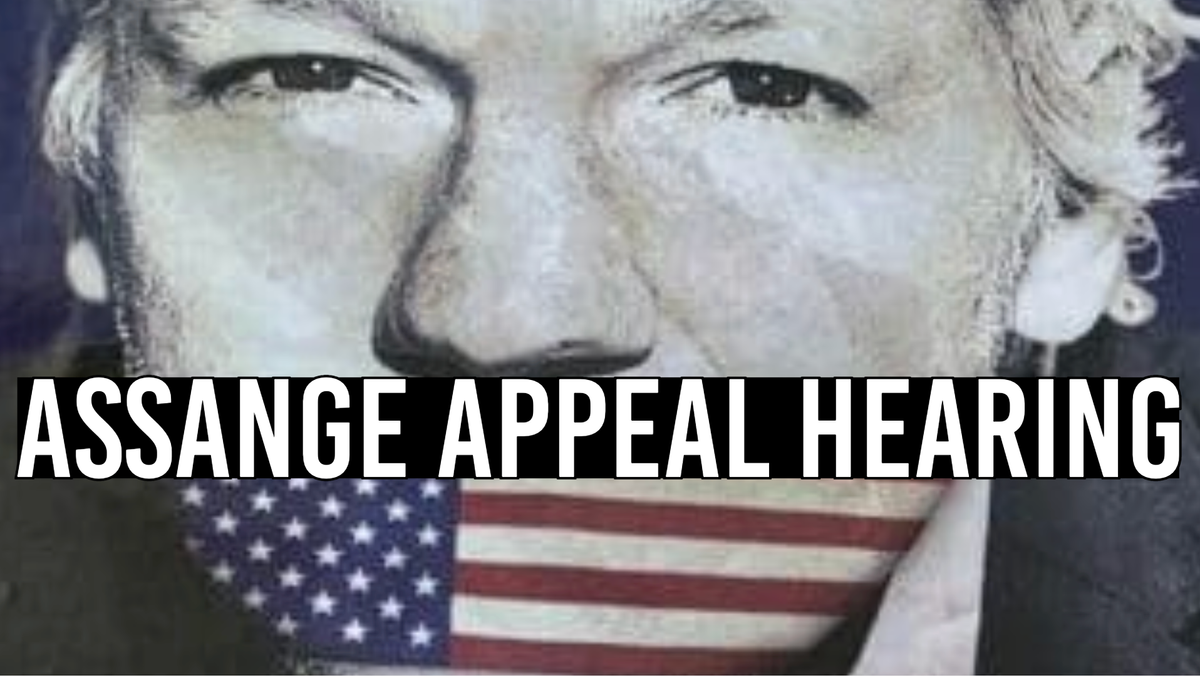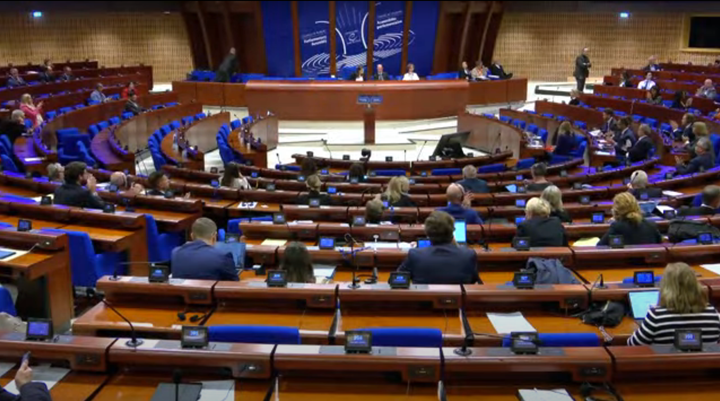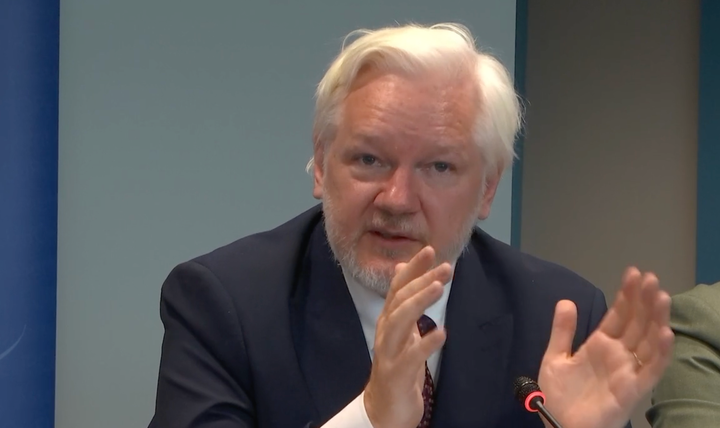UK Appeal Hearing: The Passage of Time In Assange's Case
Assange’s legal team will ask the British High Court of Justice to grapple with the “lapse of time” that has made extradition “unjust and oppressive.

Editor’s Note: Ahead of a major appeal hearing before the British High Court of Justice on February 20 and 21, the “Countdown To Day X” series highlights key aspects of WikiLeaks founder Julian Assange’s appeal against extradition to the United States.
For a little more than 13 years, WikiLeaks founder Julian Assange has been detained.
In 2016, the United Nations Working Group on Arbitrary Detention recognized that Assange had been subjected to “different forms of deprivation of liberty”—10 days of isolation at Wandsworth Prison in London, 550 days of house arrest in the United Kingdom, and at that time, around four and a half years of asylum in Ecuador’s London embassy, where he endured “extensive surveillance by the British police.”
The United States government secretly indicted Assange on December 22, 2017, and charged him with conspiracy to commit a computer intrusion. He lived in the embassy for about three more years until he was arrested on April 11, 2019, and jailed at His Majesty’s Prison Belmarsh in London. He has been held in “Britain’s Guantanamo” for nearly five years.
Fourteen years ago, United States Army whistleblower Chelsea Manning submitted the files to WikiLeaks that the former editor-in-chief has been criminalized for publishing. The U.S. Justice Department (DOJ) launched a grand jury investigation into WikiLeaks shortly after and has waged a war against the media organization in some way or another since 2010.
Manning was put on trial just over ten years ago. She was convicted of numerous Espionage Act-related offenses and sentenced to 35 years in a military prison. President Barack Obama commuted her sentence after she was imprisoned for six years. Meanwhile, Assange was never charged with any crimes by the DOJ.
Assange’s legal team will ask the British High Court of Justice to grapple with the “lapse of time” that has made extradition “unjust and oppressive.” [PDF]
Under U.K. law, extradition is supposed to be barred when it “would be unjust or oppressive in light of the amount of time that has passed since the requested person is alleged to have committed the offense.” But the Crown Prosecution Service (CPS), which has represented the U.S. government, maintains that the prohibition “does not apply as Assange deliberately evaded justice, knowing he would be charged and extradited.”
Because the U.K. government (similar to the U.S. government) does not recognize the “principle of diplomatic asylum,” which Ecuador extended to Assange, District Judge Vanessa Baraitser accepted that Assange was “fugitive,” and that it was Assange’s fault that it took so long for the U.S. government to finally indict him.
“I do not find the delay between the alleged commission of the offenses and the bringing of the complaint to be culpable delay,” Baraitser declared in her judgment [PDF]. “Mr. Assange remained in the Ecuadorian embassy during almost the whole period of the investigation, out of reach of the investigating authorities and on his own case, deliberately so.”
Baraitser suggested that the delay in charging Assange was a result of difficulties in the investigation that stemmed from “the vast amounts of data involved” and the “complications that arise from much of the information being classified as secret.” She noted that Assistant U.S. Attorney Gordon Kromberg had claimed that U.S. authorities were “still reviewing the 134,000 cables allegedly disclosed by Wikileaks” between August 23 and August 30, 2011.
What Really Delayed The Indictment Against Assange?
The idea that the DOJ needed to complete a review of hundreds of thousands of documents to charge Assange is belied by the fact that a grand jury charged Assange in March 2018 with allegedly committing a computer crime. Charging Assange with the alleged “password-cracking” offense was not dependent on the completion of a review of any set of documents.
Also, a WikiLeaks Information Review Task Force (IRTF) was established [PDF] by Pentagon Secretary Robert Gates on July 28, 2010, to review all of the documents published to WikiLeaks. Manning had been arrested so the Pentagon was able to account for all the files that were disclosed to WikiLeaks, even if they had not been published.
IRTF’s review accounted for documents that would allegedly expose “intelligence sources and methods,” negatively impact U.S. foreign policy, or immediately endanger U.S. forces. It was separate from the DOJ’s criminal investigation, however, that review upon completion was available for Manning’s court-martial and certainly would have given the DOJ all that it needed to charge Assange by 2013.
Furthermore, the record contains no evidence that Assange was not charged until 2017 because he was considered a fugitive. That certainly did not stop the U.S. government from charging NSA whistleblower Edward Snowden with violating the Espionage Act after he fled to Hong Kong.
U.S. authorities did not decide to wait until Assange left Ecuador’s embassy to prosecute him. In fact, the delay only appears to be a delay.
Attorney General Eric Holder never formally shut down the grand jury investigation, which enabled President Donald Trump’s administration to depart from the approach of the Obama administration and pursue charges. Still, Holder reportedly accepted that there was no way to prosecute Assange without undermining the First Amendment.
'A Real Risk of Prejudice'
Assange’s defense has argued that “there is a real risk of prejudice given the great difficulties in reconstructing the events of 2010 and 2011, which will be necessary in order to rebut the U.S.’s misleading allegations as to recklessness to the causation of harm. There are grave problems in now attempting to reconstruct and prove the sequence of events in 2011, which led to the eventual publication of unredacted materials after publication by others.”
The passage of time also makes it difficult to rebut allegations that “individuals in various countries were exposed to danger as a result of the revelations,” according to his legal team.
In the court's judgment, Baraitser insensibly addressed this concern. “The prosecution will have the burden of establishing this on the basis of evidence. If the defense encounters genuine difficulties in testing or challenging this, it is reasonable to assume that the U.S. has a procedure which enables evidence to be excluded within the trial process, where reliance upon it would be unfair, whether by virtue of the passage of time or for any other reason.”
While defendants may be able to ask a court to exclude evidence, it is unlikely that a court would allow the exclusion of any reports completed by government agencies that conducted reviews over a decade ago.
Any reviews completed by the DOJ for the express purpose of prosecuting Assange, like the assessment of diplomatic cables mentioned by Kromberg, would never be tossed out by a judge, even if it was impossible for Assange to question the sources behind supposed evidence of potential harm.
'Foundations of Sand'
It is 2024. The U.S. wars in Iraq and Afghanistan that Assange and WikiLeaks further exposed have both ended. New wars that Assange has not been able to openly challenge have been started.
Longtime supporters and defense witnesses have died, like human rights attorney Michael Ratner (2016), John Jones QC (2016), Gavin MacFadyen (2016), Pentagon Papers whistleblower Daniel Ellsberg (2023).
The WikiLeaks founder is now an increasingly frail 52-year-old, and the limbo created by delays in extradition proceedings have only compounded his physical and mental health problems.
In 2010, when he garnered worldwide interest for publishing documents from Manning, he was 38 years old. He was 40 years old when he sought asylum from Ecuador. He was 44 years old when the UN working group declared that he had suffered arbitrary detention. He was 46 years old when the DOJ secretly indicted him. He was 47 years old when the U.S. government successfully had him removed from Ecuador’s embassy for extradition.
Assange met Stella Moris, his wife, in 2015. He fathered two children in 2017 and 2019. At the time, he was in his late 40s.
To Assange’s decision to establish a family life, Crown prosecutors say:
[A]ny decision Assange made to establish a family life when, on his own case he faced prosecution and was living in an embassy expressly so as to avoid extradition, was a decision made in the full knowledge of how precarious the foundation of that family life was. His family life was built on foundations of sand.
Yet despite what U.S. and U.K. authorities may claim, they created the sandy foundations that have swallowed Assange’s life more and more each year. They are the ones who chose to pursue an unprecedented and political case that is widely condemned throughout the world.
A big thanks to new donors and paid subscribers of The Dissenter. For further reading, here's where you may purchase a copy of my book, "Guilty of Journalism: The Political Case Against Julian Assange."




Comments ()